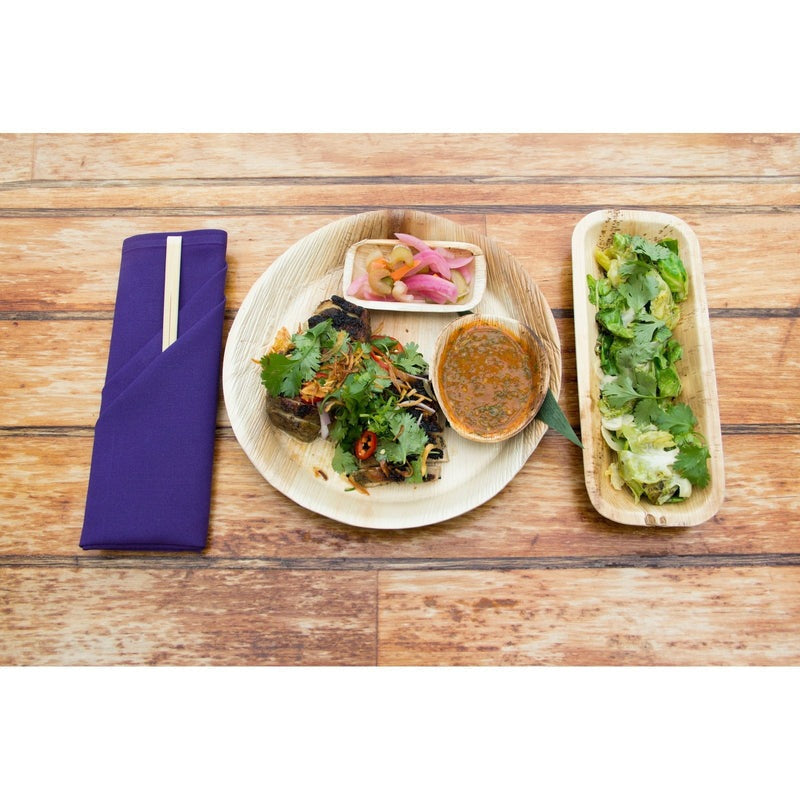In today’s fast-paced world, convenience often comes at the cost of the environment. From plastic cutlery to Styrofoam containers, disposable items have contributed significantly to global waste. However, as consumers and businesses become more environmentally conscious, sustainable alternatives are gaining momentum. Two of the most practical and eco-friendly solutions are fiber plates and compostable coffee cups. These products not only provide the same level of convenience as traditional disposables but also help reduce pollution, promote composting, and support a greener future.
Why Fiber Plates Are a Sustainable Choice
Fiber plates are made from natural plant-based materials such as sugarcane bagasse, wheat straw, or bamboo fibers. Unlike plastic or Styrofoam, these raw materials are renewable and biodegradable. After use, fiber plates break down naturally without releasing toxic chemicals into the soil or water.
One of the biggest advantages of fiber plates is their durability. Despite being lightweight, they can hold both hot and cold food without leaking or bending. This makes them suitable for picnics, parties, corporate events, and food service businesses. For restaurants and caterers, switching to fiber plates means they can meet customer expectations for eco-friendly dining while maintaining practicality.
Fiber plates also have a clean, natural look that complements modern sustainability-focused branding. Businesses that use them send a strong message to customers about their commitment to reducing plastic waste and supporting environmental responsibility.

The Role of Compostable Coffee Cups in Reducing Plastic Waste
Coffee culture has become a daily ritual for millions of people worldwide. Unfortunately, the widespread use of plastic-lined paper cups has created a major environmental issue. Traditional coffee cups, although made of paper, are coated with plastic to prevent leaks. This plastic lining makes them non-recyclable in most facilities, leading to billions of cups ending up in landfills each year.
Compostable coffee cups solve this problem by replacing the plastic lining with plant-based alternatives such as PLA (polylactic acid) made from corn starch. These cups can be composted in commercial composting facilities, where they break down into natural components like water, carbon dioxide, and organic matter.
For eco-conscious cafés, offices, and event organizers, compostable coffee cups are a powerful way to reduce waste. Customers increasingly prefer brands that prioritize sustainability, and offering compostable options can set a business apart in a competitive market.
How Fiber Plates and Compostable Coffee Cups Support a Circular Economy
The concept of a circular economy emphasizes reusing resources instead of throwing them away. Fiber plates and compostable coffee cups play a key role in this model. After use, these items can be collected with food scraps and sent to composting facilities. Within weeks, they transform into nutrient-rich compost that improves soil health and reduces the need for chemical fertilizers.
This closed-loop system ensures that disposable products no longer contribute to pollution but instead help restore natural ecosystems. For communities aiming to achieve zero-waste goals, integrating compostable packaging is an essential step.
Benefits for Businesses and Consumers
Adopting fiber plates and compostable coffee cups comes with multiple advantages:
Eco-Friendly Branding – Businesses can showcase their commitment to sustainability, which builds customer loyalty and trust.
Compliance with Regulations – Many governments are banning single-use plastics. Compostable alternatives help companies stay compliant with new environmental laws.
Customer Demand – Modern consumers are actively looking for eco-conscious dining options. By offering compostable packaging, businesses can attract more customers.
Convenience – Just like plastic or paper disposables, fiber plates and compostable coffee cups are lightweight, easy to use, and require no washing.
Better End of Life – Instead of lingering in landfills for hundreds of years, these items decompose within months under proper composting conditions.
Overcoming Challenges with Compostable Products
While the benefits are clear, some challenges still exist. One common issue is the availability of composting facilities. In some regions, access to commercial composting is limited, which can slow down the adoption of fiber plates and compostable coffee cups. However, as awareness grows, municipalities and private companies are expanding composting infrastructure to meet demand.
Another factor is cost. Compostable alternatives can be slightly more expensive than traditional disposables. Yet, as production scales up and more businesses make the switch, prices are gradually becoming more competitive. In addition, the long-term benefits of reducing environmental damage and appealing to eco-conscious consumers often outweigh the initial expense.
How You Can Make the Switch
For individuals, using fiber plates and compostable coffee cups at home, in offices, or during gatherings is a simple yet impactful way to reduce plastic waste. Many online and local stores now stock eco-friendly disposables, making them accessible to everyone.
For businesses, switching to sustainable packaging requires planning but offers significant returns. Partnering with trusted suppliers ensures consistent quality and supply. Clear communication with customers—such as labeling products as compostable and providing disposal guidance—also enhances the impact.

Looking Ahead: A Greener Future with Compostable Alternatives
The shift toward eco-friendly disposables is more than a trend; it is a necessity. With growing awareness of climate change, ocean pollution, and landfill waste, fiber plates and compostable coffee cups represent practical solutions that align with global sustainability goals.
By choosing these alternatives, individuals and organizations take active steps to reduce their carbon footprint and contribute to a healthier planet. Every meal served on a fiber plate and every latte enjoyed in a compostable coffee cup helps drive change toward a waste-free future.
Conclusion
Sustainability begins with small, conscious choices. Replacing plastic and Styrofoam with fiber plates and compostable coffee cups is a powerful decision that supports environmental protection without sacrificing convenience. Whether you’re hosting an event, running a café, or simply enjoying a meal at home, these eco-friendly disposables make it easy to align daily habits with green values.